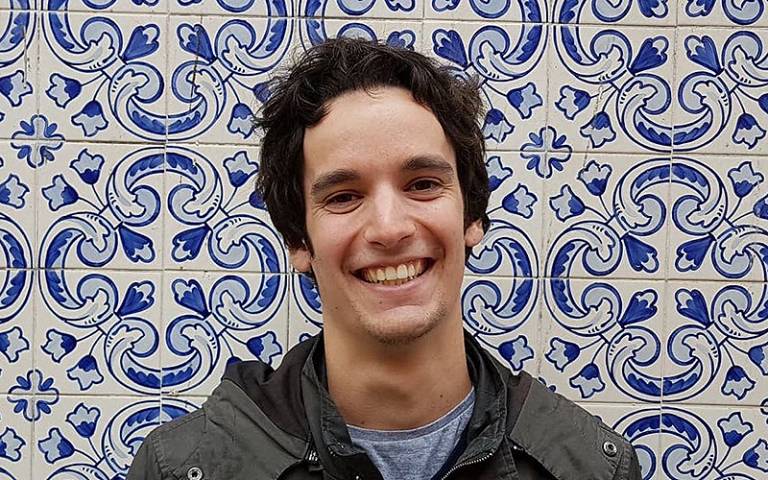Martin Rey awarded 2020 Chris Skinner Prize for outstanding postgraduate research
9 March 2021
The Cosmoparticle Initiative congratulates PhD alumnus Martin Rey on being awarded the Chris Skinner prize for his research on galaxy formation

The Chris Skinner prize was created by UCL’s Astrophysics group in 2014 to commemorate a talented UCL Astrophysicist who died prematurely at the age of 34. Chris had been an undergraduate, postgraduate and post-doctoral researcher at UCL. The creation of the Chris Skinner prize allows the work of many excellent candidates to be acknowledged during the annual thesis prize evaluations, alongside the Jon Darius Memorial prize.
Q. What area of Astrophysics was your PhD in?
My PhD thesis focussed on the formation of galaxies in our Universe, how we went from the hot and dense early universe to the structures like galaxies and stars that we observe today. In particular, we focussed on how the smallest, dwarf galaxies in our Universe formed and evolved, using the latest generation of numerical simulations developed in collaboration between Surrey University, Lund University and UCL.
Q. After completing your thesis, what direction did you want your research to take?
I wanted to develop my own research programme to understand how galaxies like our own Milky-Way have been constructed, and in particular how signatures of their past history can be deciphered from the diffuse halo of stars that surrounds them. I am also still strongly involved with research at UCL, collaborating with Andrew Pontzen and Amélie Saintonge to build upon the work on dwarf galaxies that was developed during my PhD.
Q. Have you been able to develop this in your recent appointment at Lund University?
Absolutely, I have been undertaking the above research program since my start at Lund University, and I expect the first results to be coming out in the next months. I don’t have examples to provide just yet (it’s all unpublished) but some of my collaborative work has been published.
Q. So, what next for you Martin?
In September I shall join the Beecroft Institute of Particle Astrophysics and Cosmology, Oxford as a Beecroft Fellow, undertaking independent research. I will keep working on how galaxies like our Milky Way formed, and then try to move back to more theoretical physics topics to constrain the nature of dark matter and dark energy, although the exact ideas haven’t fully crystallised in my head just yet!
Q. Living in Lund must be very different to life in London! What are the main differences, and what do you enjoy most about living in Sweden?
Moving from a 10M-people capital to a 50k-people university town was quite a step indeed. The main difference is the quality of life I would say, no commute, space to live, the closeness of nature and a slower pace of life overall. I do miss the culture and vibrant atmosphere of London though (although during this Covid-19 pandemic, it’s debatable how much that is still true!), as well as how easy it was to meet people with very diverse experiences and backgrounds.
The thing I enjoyed the most in Lund (and Malmö where I actually live) is the ability to take a bike ride to the seaside in 15min. It’s great in winter but even better in summer!
Q. What is your take away from your time in UCL?
I absolutely loved my time at UCL, and it's primarily thanks to the people. The main takeaway for me is how awesome people were with me, which made the atmosphere and working in the group so enjoyable. The PhD developed and changed me as a person in ways I did not foresee a few years ago, and I am extremely grateful to the Astrophysics group and Cosmoparticle Initiative for that!
Links
More about Martin Rey
Christopher Skinner Obituary published in the RAS Astronomy & Geophysics magazine
Christopher Skinner Obituary published in The Independent written by Mike Barlow
Jon Darius Obituary published in The Independent
Beecroft Institute of Particle Astrophysics and Cosmology
 Close
Close

